A Week in the Bush Vol. 523
on Nov 13, 2024Exciting news this week is that Ntsumi’s daughters have reached independence and have been named!
- Kurhula – meaning peace/calm.
- Mgiba – named after Elliott Mgiba as a tribute to a man who has given so much of his life to Sabi Sabi with over 40 years’ service!!
After searching high and low for leopard, we finally located Mgiba. To our delight, we discovered that she had successfully brought down an impala. The young leopardess, however, found the carcass too heavy to lift into a tree, forcing her to feed on the ground immediately after the kill.
Leopards typically hoist their prey into trees to protect it from hyenas and other scavengers. But when they catch prey that's too large to hoist, they must feed quickly, aware that it could be stolen at any moment by opportunistic predators. This successful hunt is a tremendous confidence boost for the young female, helping her further hone her hunting skills and instincts.
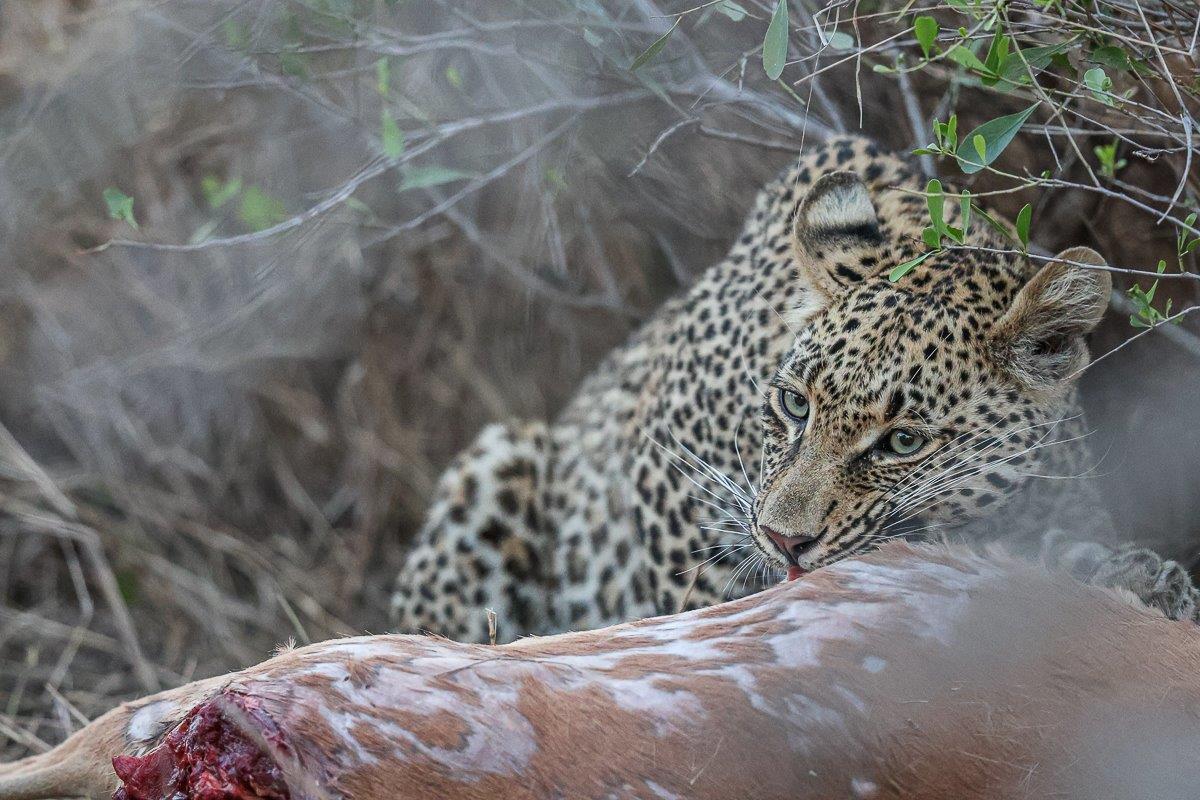
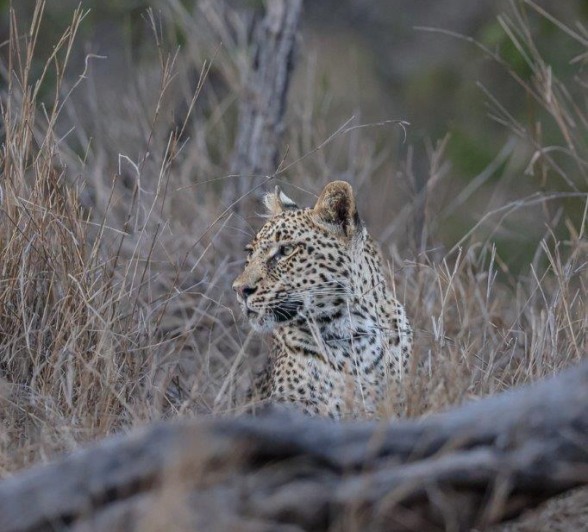
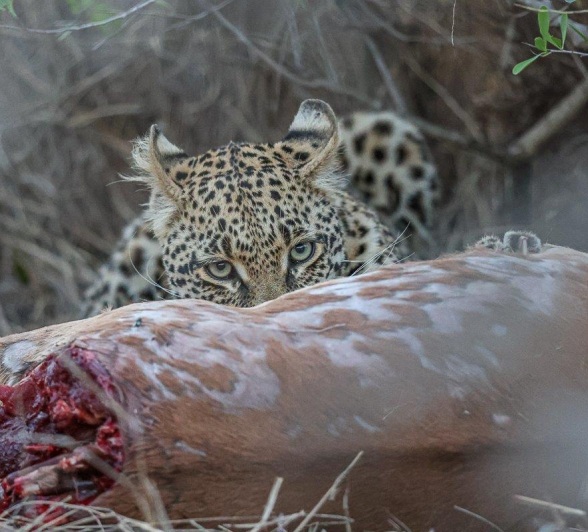
Kurhula was also seen with an impala kill, which was on the ground and before long, hyenas took advantage and stole her kill.
Inexperienced young leopards often lose their kills to other predators, mainly because they struggle with timing and miss opportunities to hoist their prey into trees. It's a harsh lesson, but one they eventually learn.
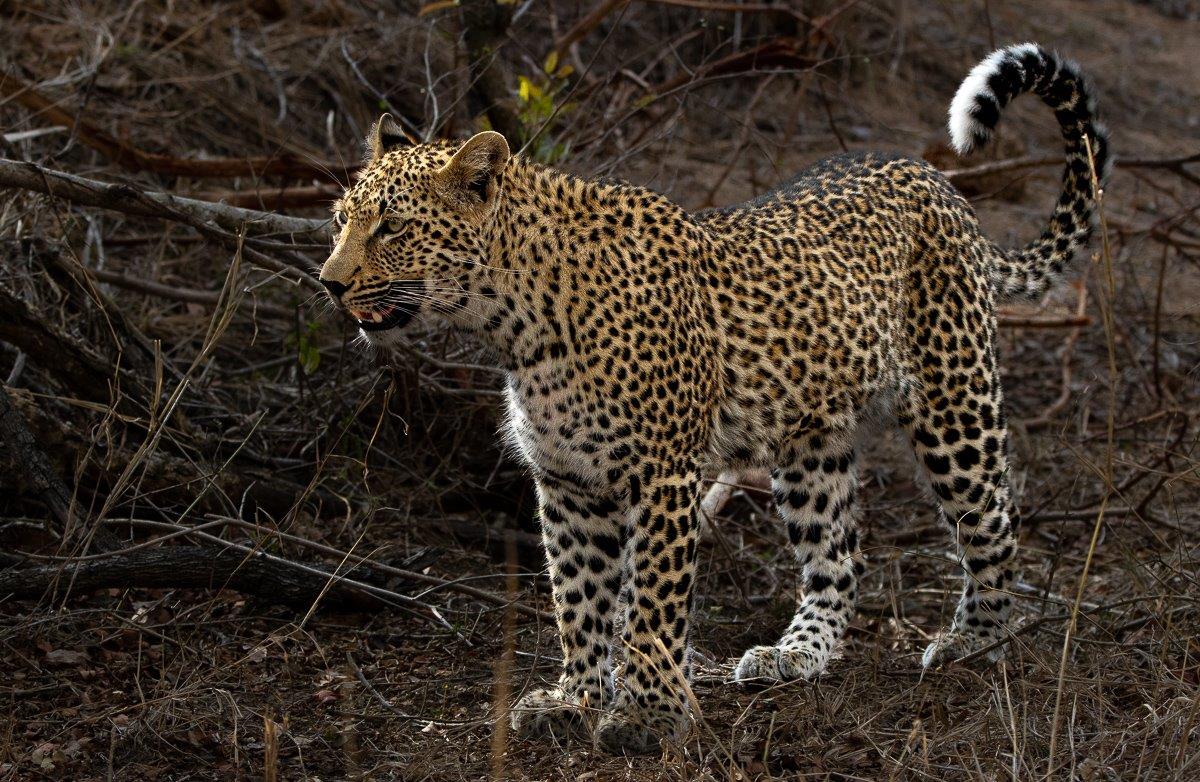
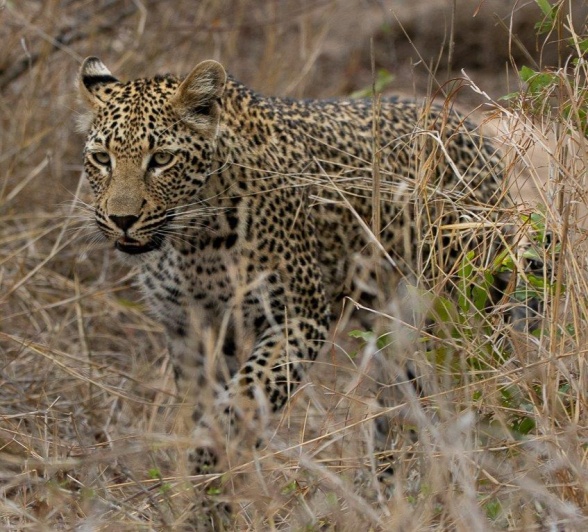
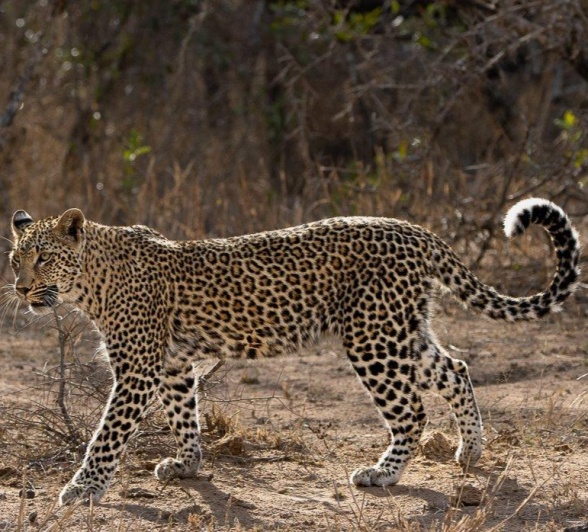
The eastern sections of the reserve have recently become a favoured area for Kurhula and Mgiba, offering us consistent opportunities to see these elusive young leopards. We scoured the drainage lines and treetops, knowing how expertly they blend into their surroundings. Sure enough, one of Ntsumi's cubs was hidden so well that we nearly drove right past her! Though she wasn’t particularly active, the warm afternoon light cast a beautiful glow around her, making the sighting absolutely captivating and well worth the search.
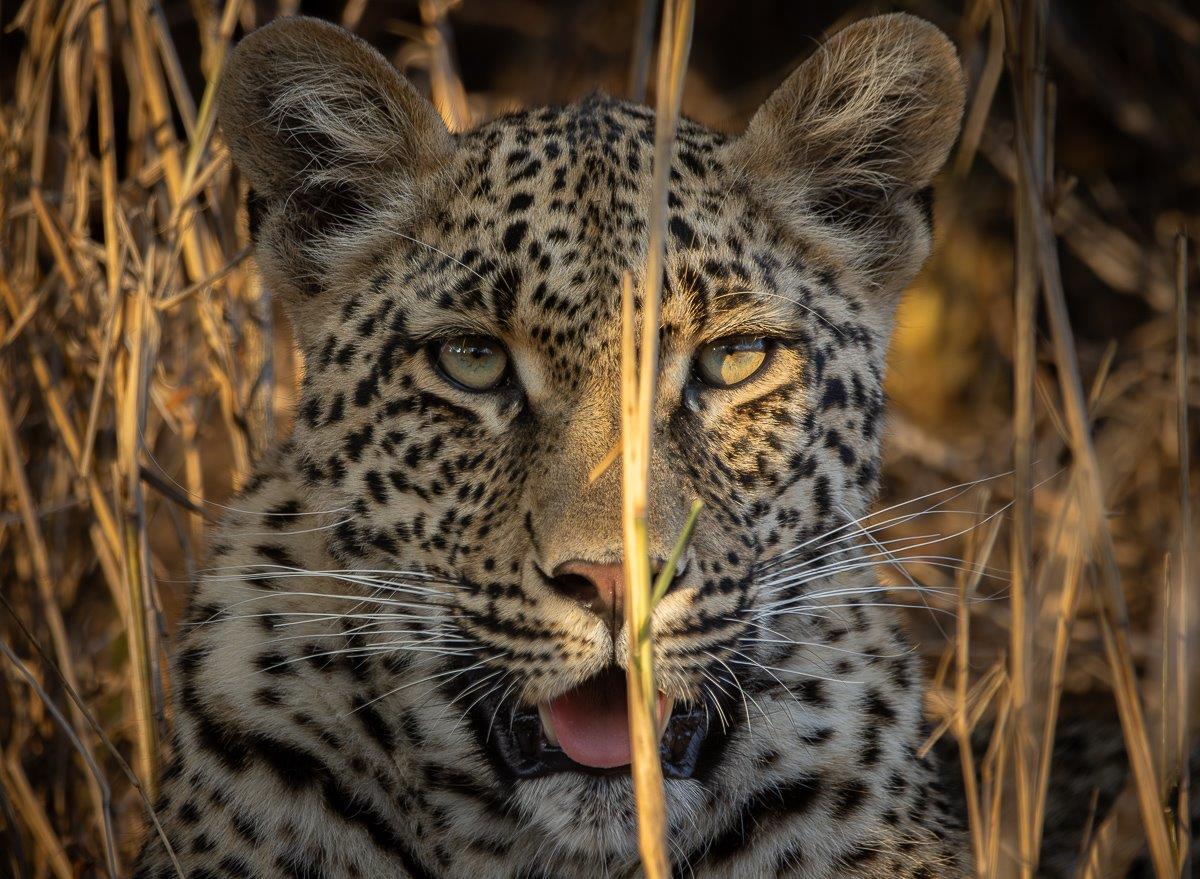
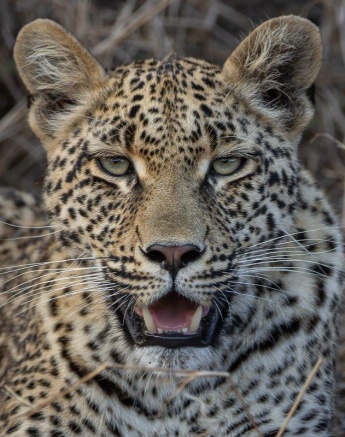
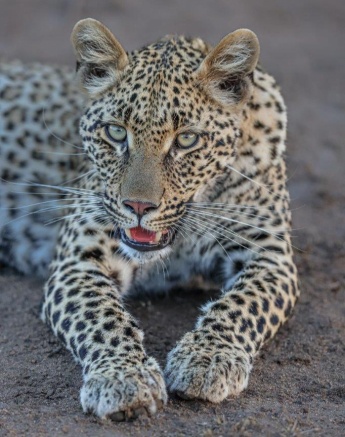
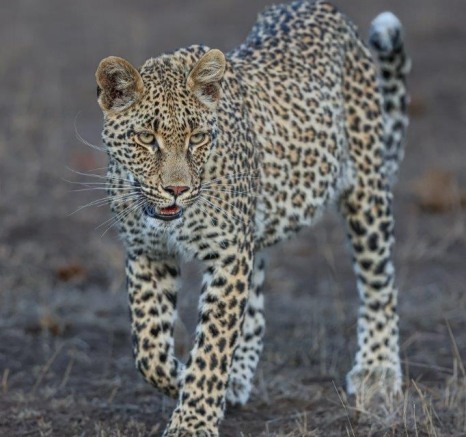
The Msuthlu Pride and Gjima males has been offering an incredible spectacle for both guests and staff at Bush Lodge, making the watering hole their chosen spot over the last few days. With their proud father close by, the cubs - full of boundless energy - played and pounced, bringing joy to everyone watching. As the morning sun climbed higher, the shade slowly disappeared, prompting the pride to seek new patches of shelter. Under the watchful eye of their father, they moved with a relaxed ease, blending family playtime with the instinctual rhythm of life in the bush.
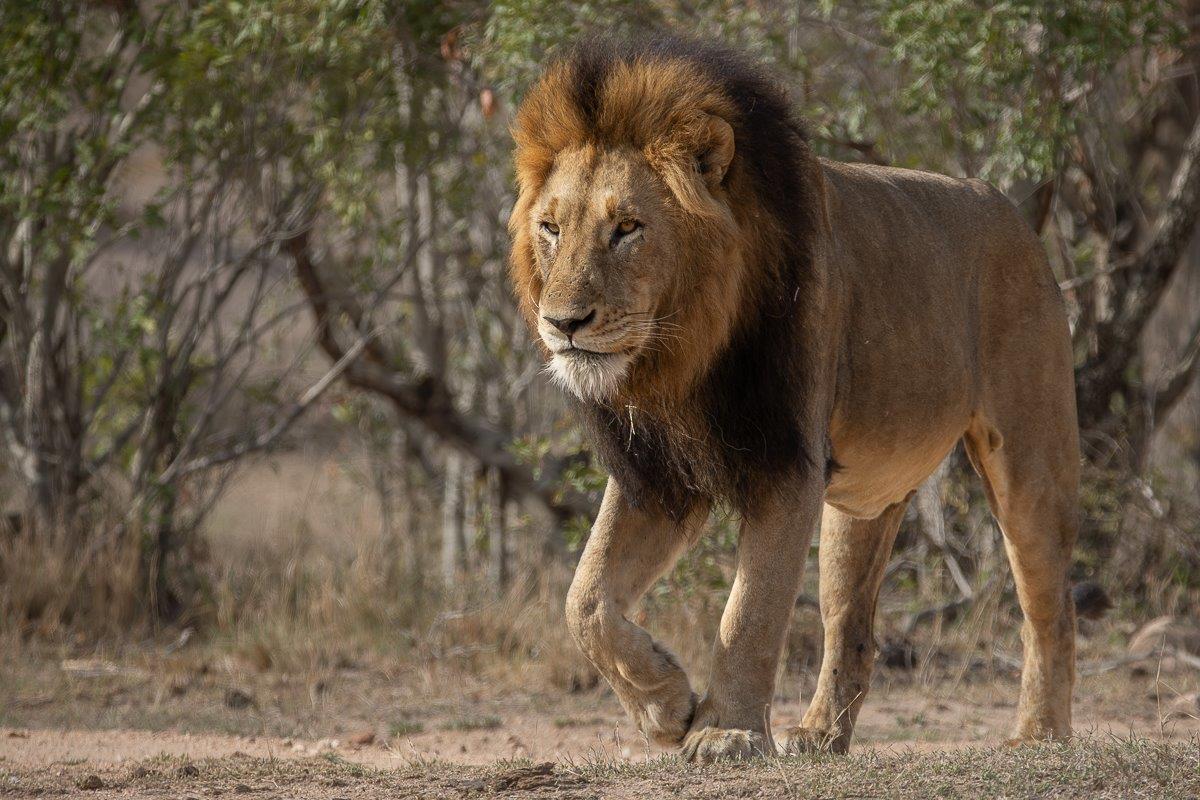
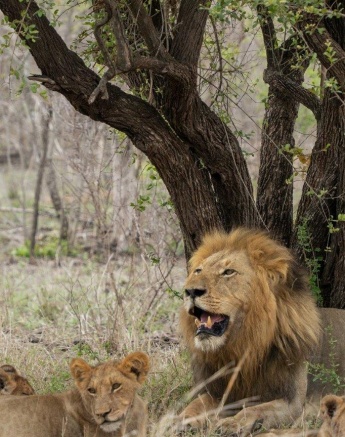
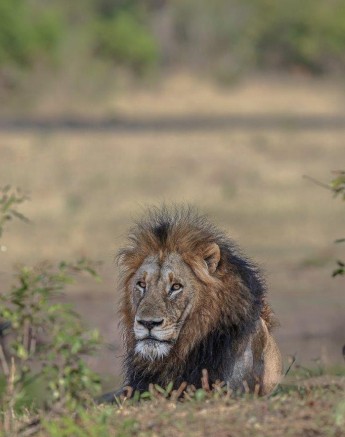
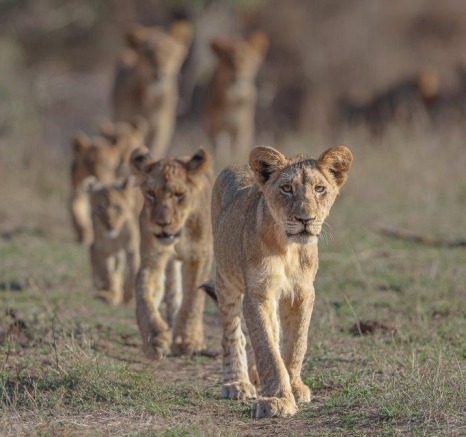
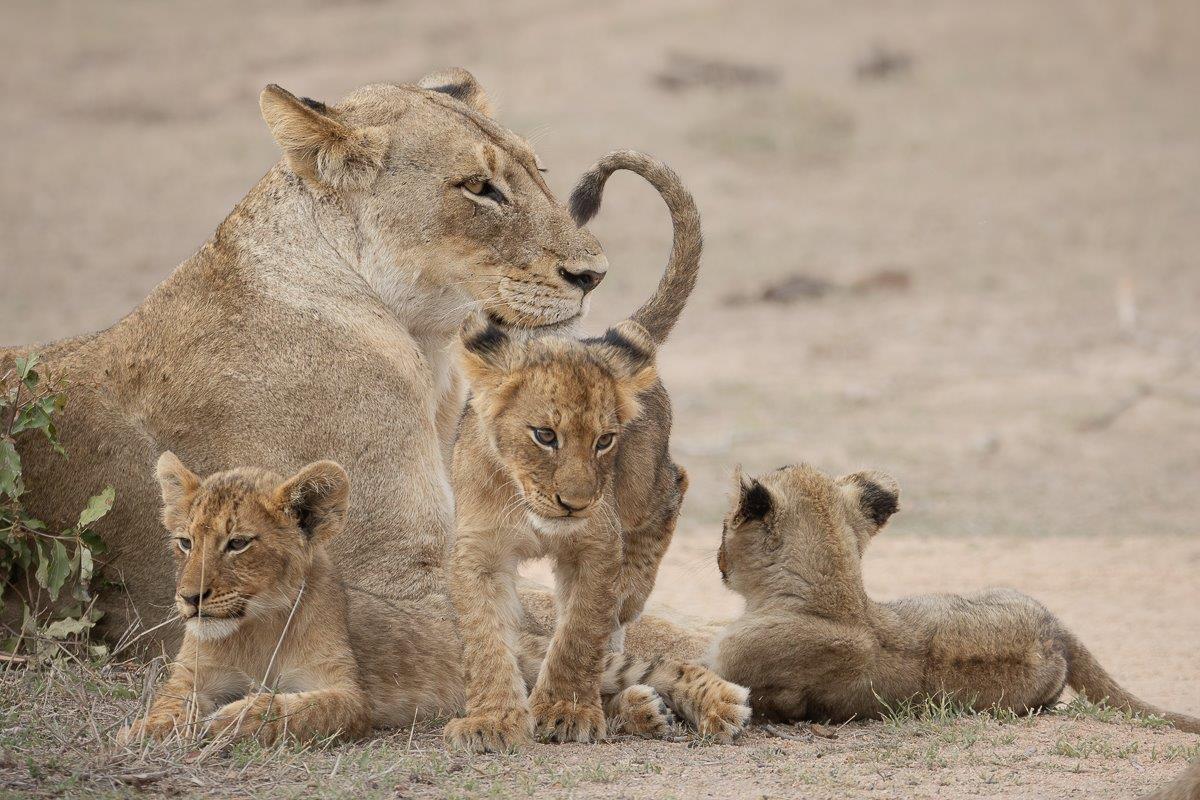
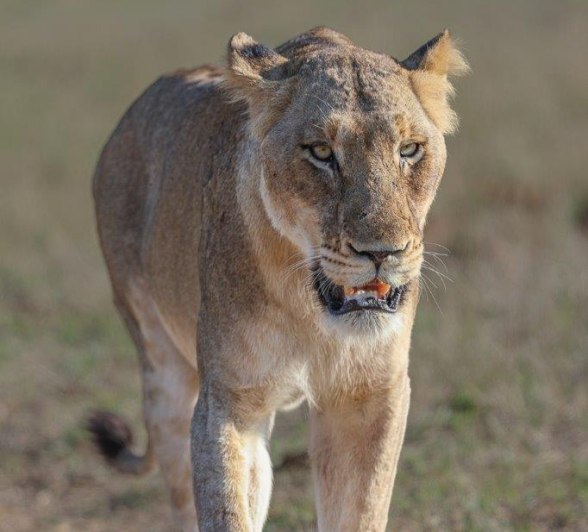
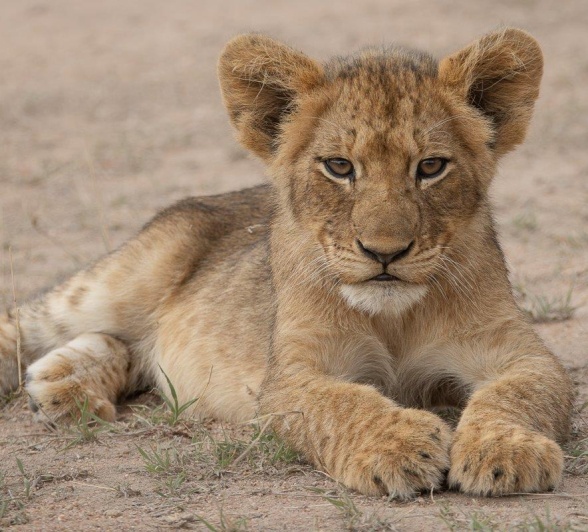
A few days later, we found the whole pride on not only one, but two buffalo kills! They have secured food for themselves that will sustain them for multiple days. With big buffalo herds, lions wait for a back straggler or one to isolate itself before going for the kill. Often when they have this buffalo and it starts distress calling, other buffalo come back to try and help, this most likely backfired for the second buffalo as she was also by herself and got taken down as well. This pride is doing very well for themselves and the Gijima males are doing everything in their power to protect them.
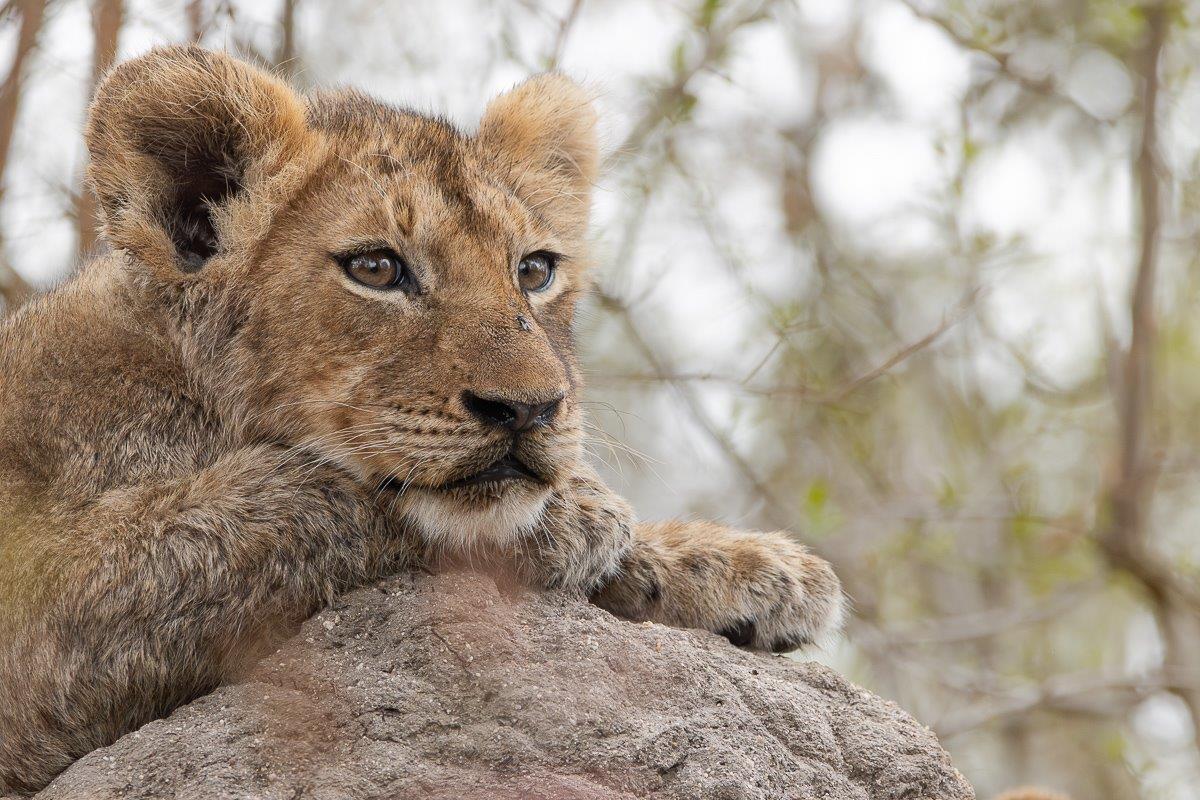
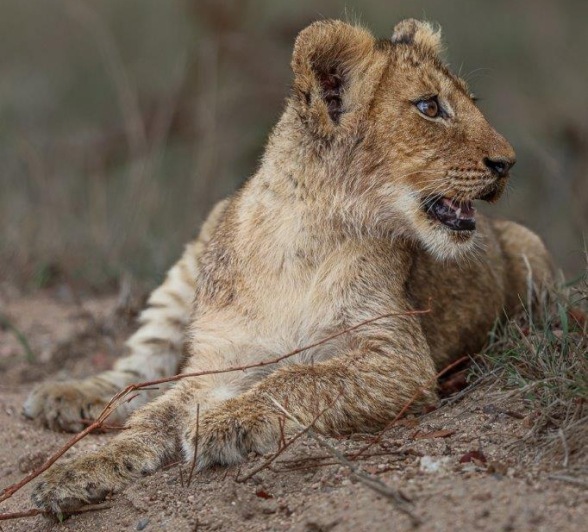
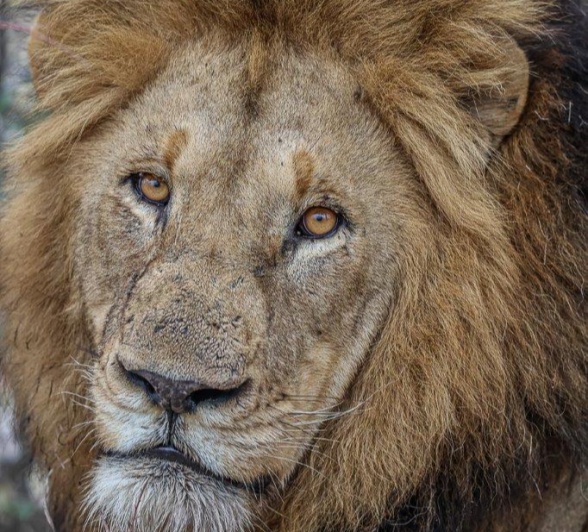
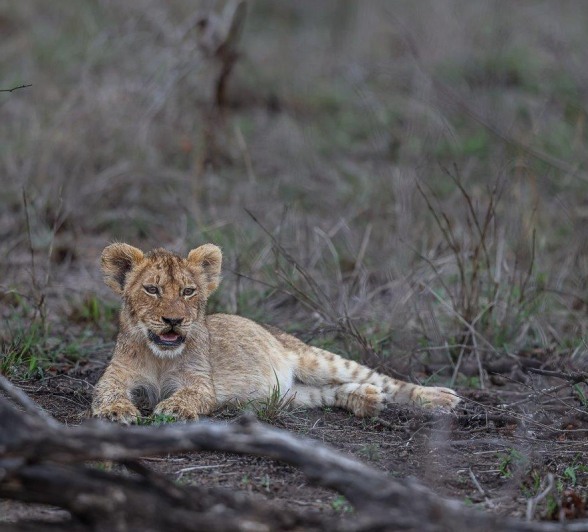
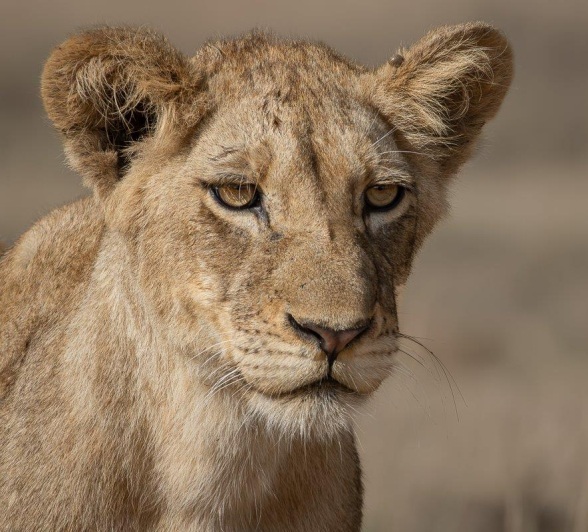
The Nkuhuma male and Talamati male were spotted near Little Bush Camp, moving south. We followed them for a while until they encountered a herd of buffalo moving quickly in their direction. As the herd noticed the lions, they instantly shifted to a defensive stance. The lions responded with a counterattack, nearly capturing a calf. Then, as a lone cow fell behind the herd, the lions seized the opportunity; they quickly surrounded her, and the Nkuhuma male brought her down.
The following day, the lions made their way deeper south into our reserve. Lions often walk down the roads as it is much easier than walking through the bush, especially when they are missioning to get somewhere. With an unexpected alarm call from impalas nearby, these males got themselves comfortable on a big termite mound, overlooking the area ahead to scout what they might run into. All predators generally use termite mounds or any slight elevation that they can find to get a better view of their surroundings.
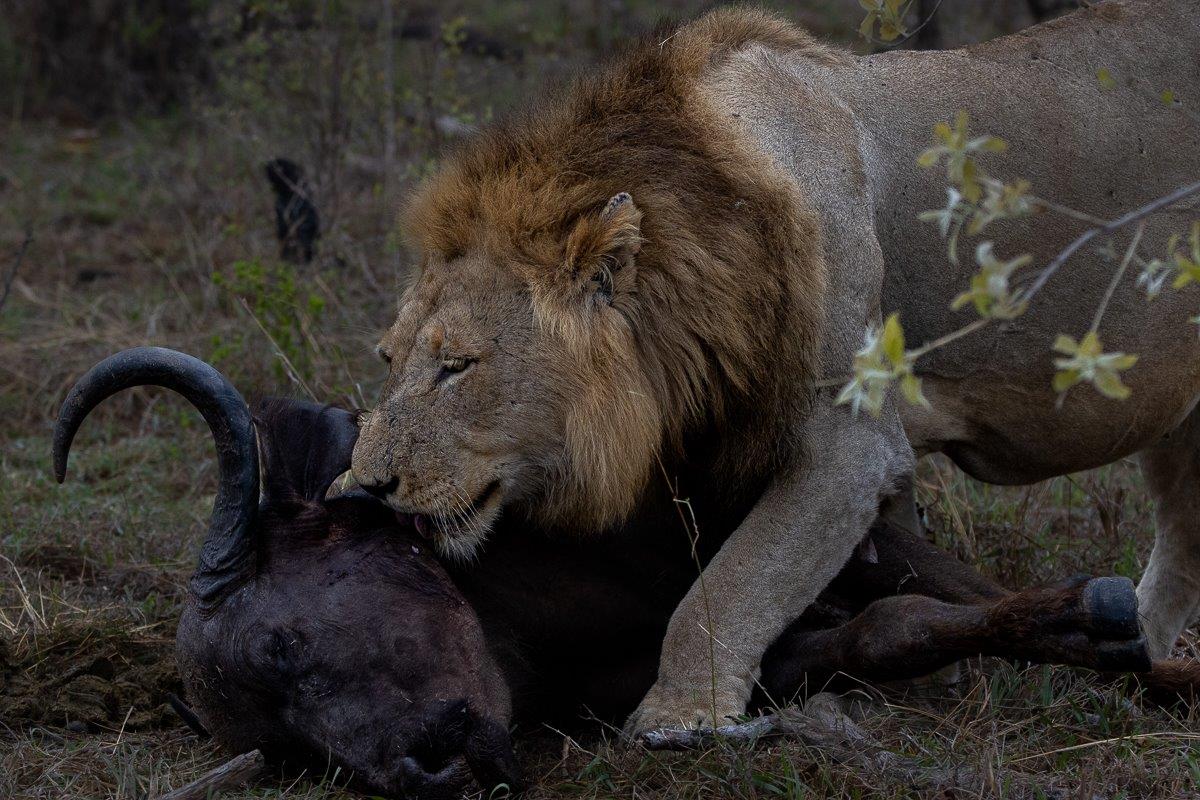
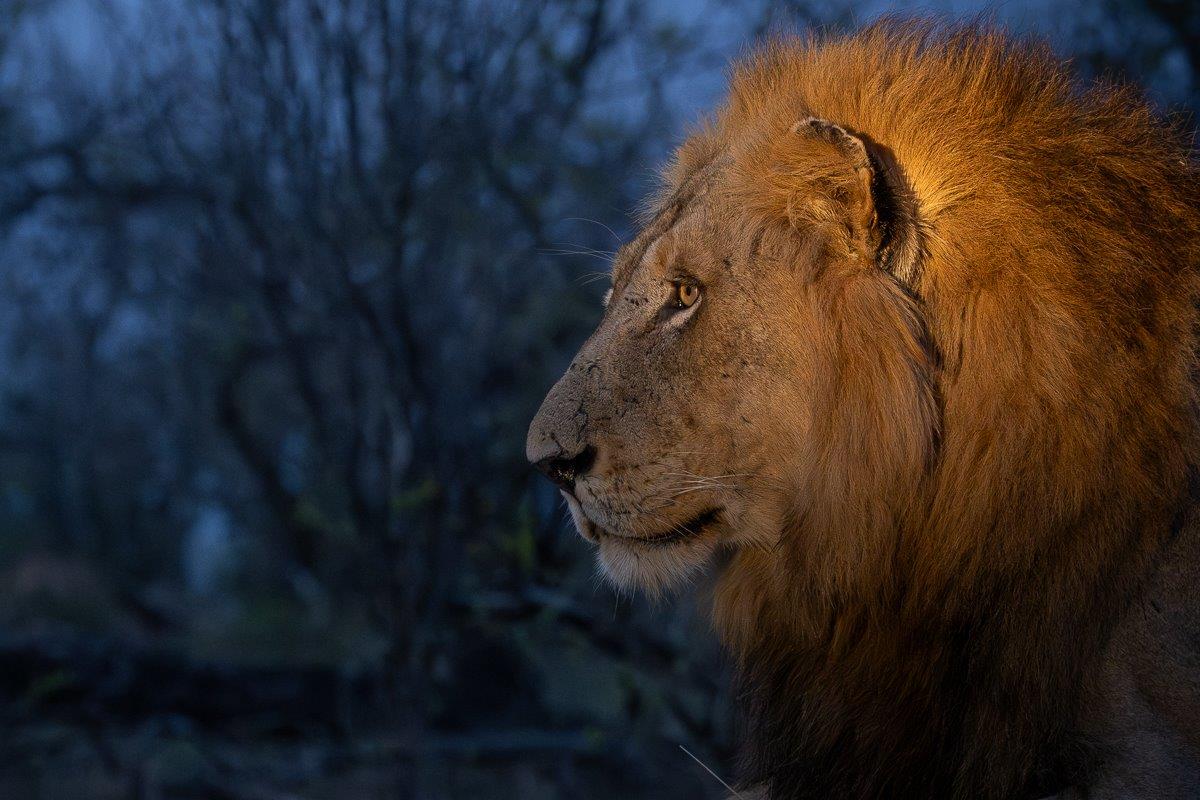
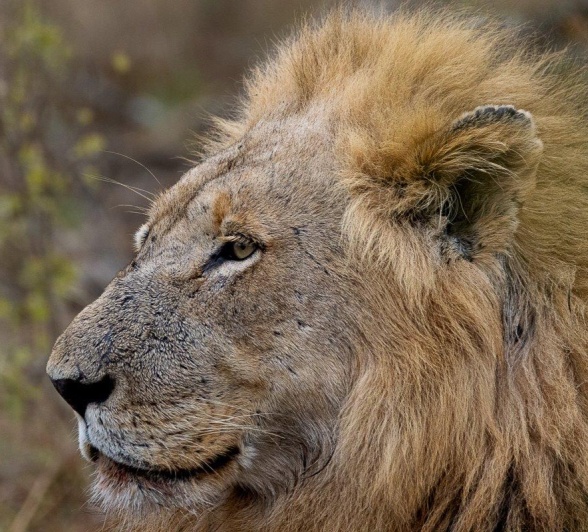
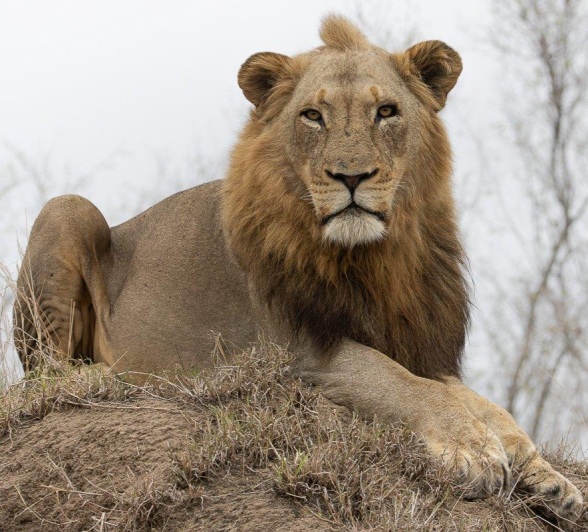
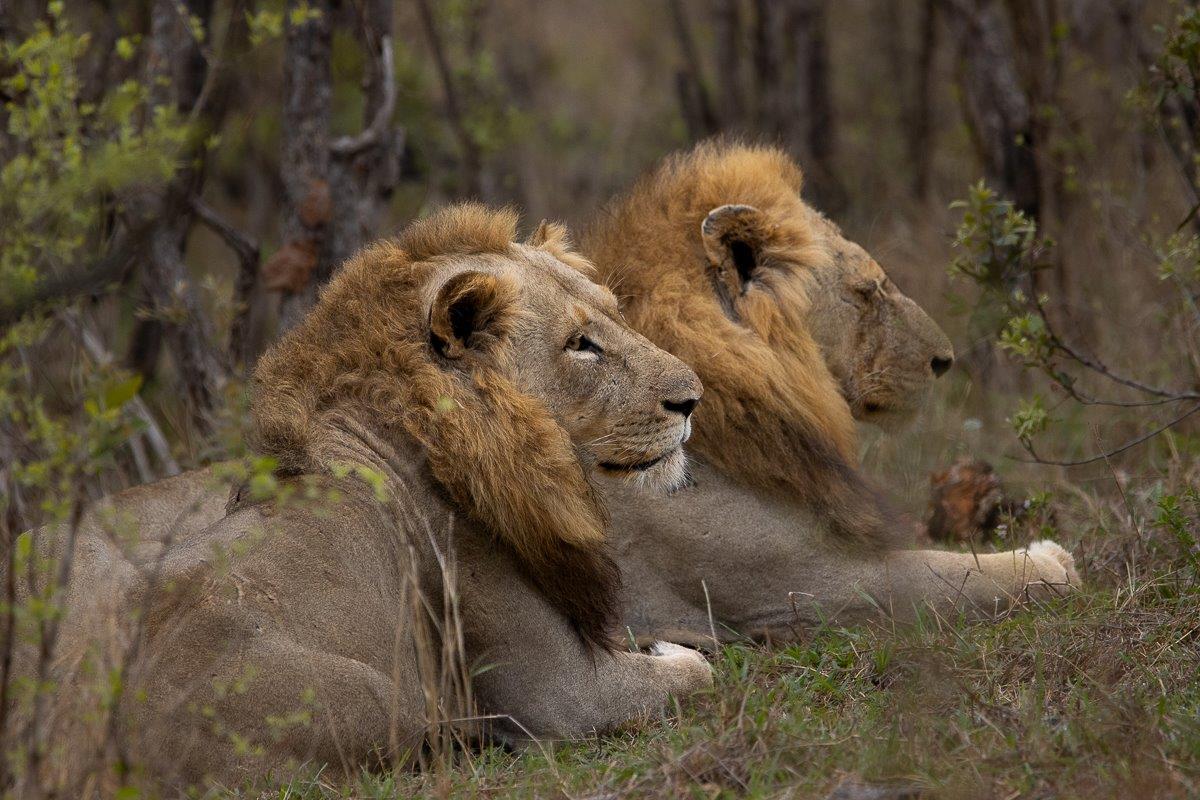
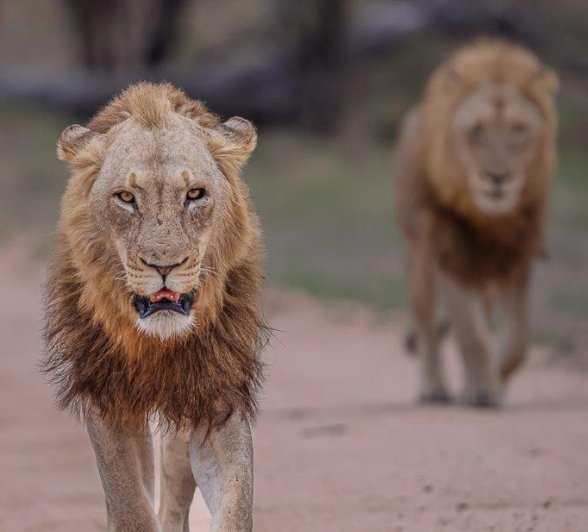
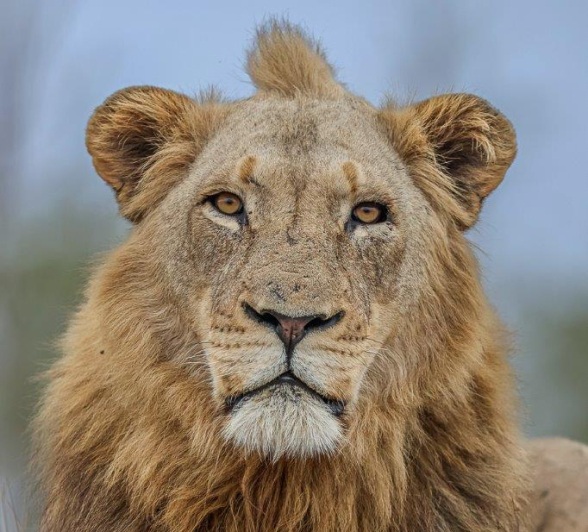
After finishing their buffalo kill, the Talamati and Nkuhuma males lay in the shade, panting heavily. Vultures had already begun gathering in the area, a sign that the lions might soon move off to avoid drawing attention from the dominant males in the territory. Lions often keep a close eye on vulture activity, instinctively recognizing that the birds’ descent signals the presence of a nearby carcass - a potential opportunity for an easy meal.
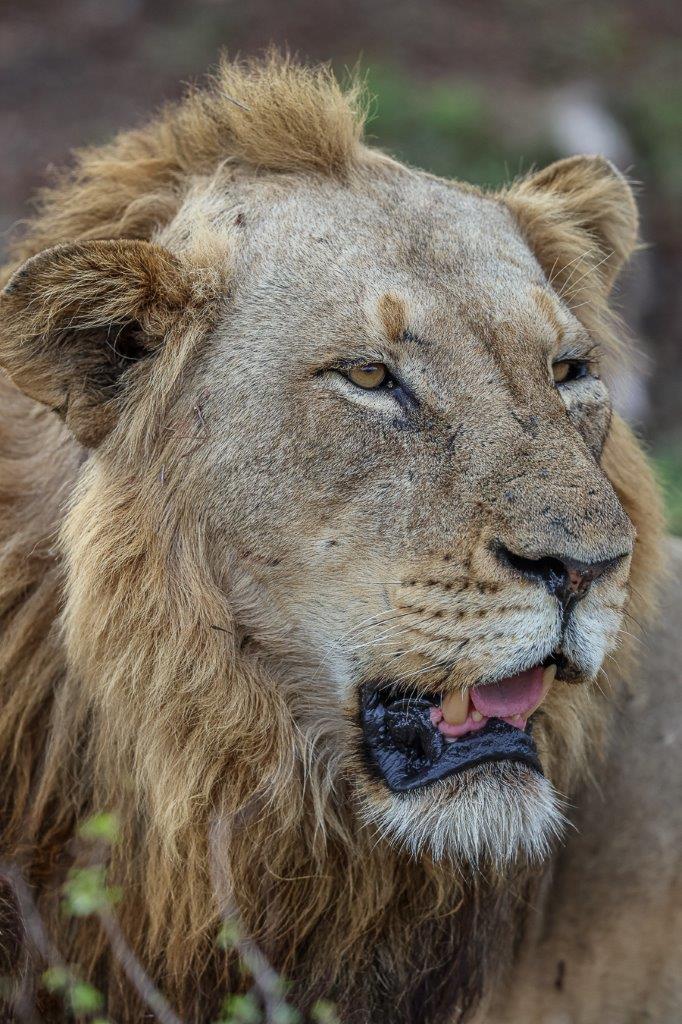
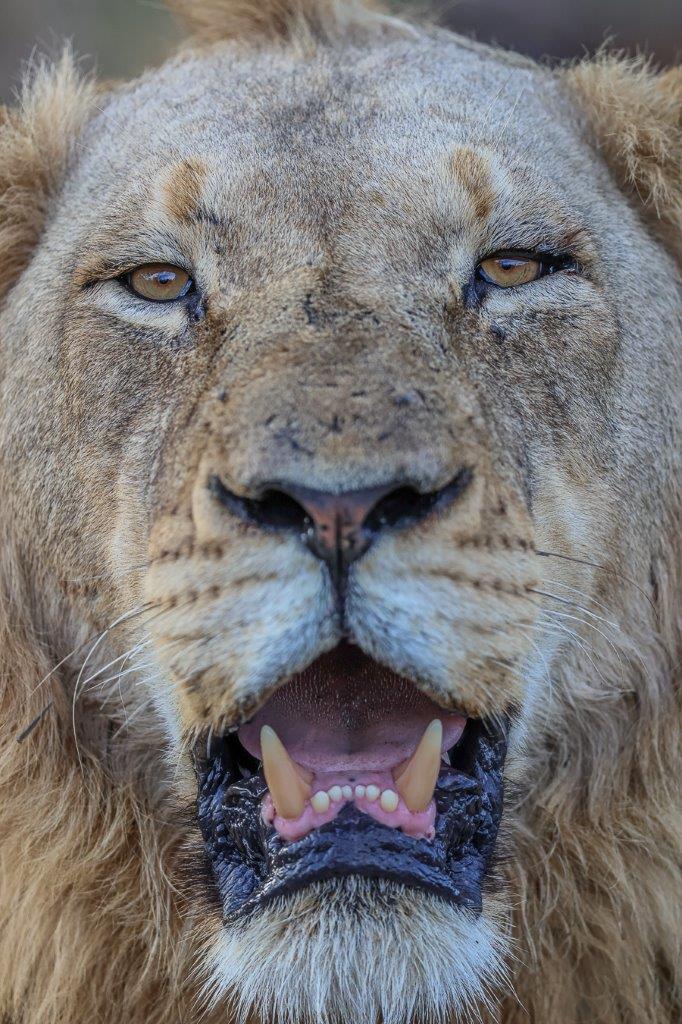
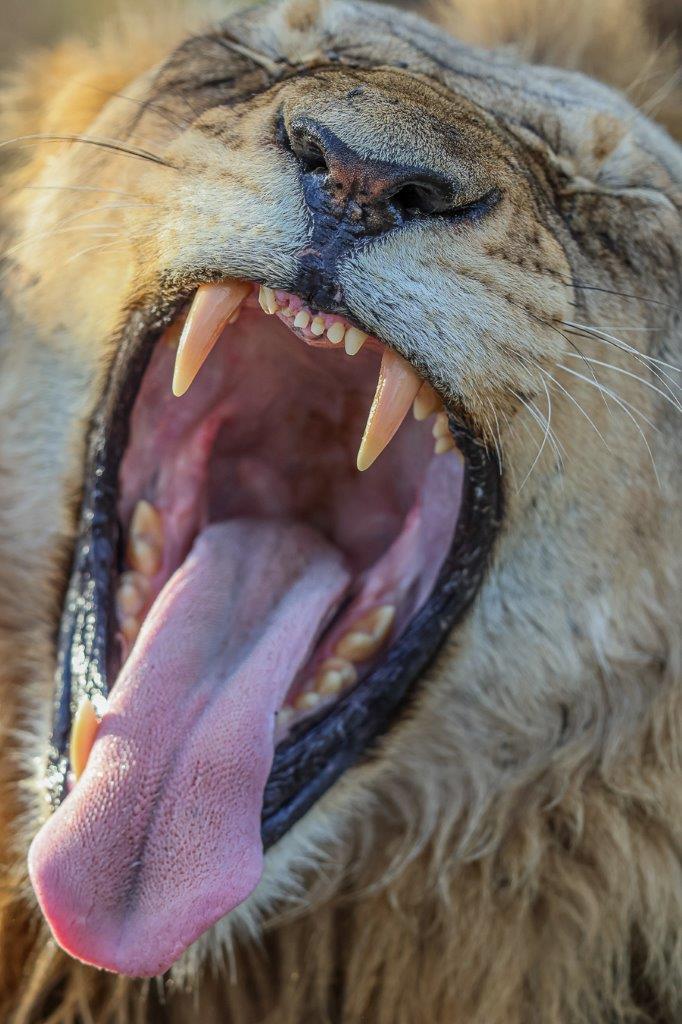
An exhilarating morning in the bush unfolded as we trailed a male lion moving stealthily through the undergrowth. Suddenly, the quiet was shattered by growls, and we saw the lion had stumbled upon an unexpected scene - not one but two leopards hidden in the tall grass. To our surprise, it was the mating pair Ntsumi and Mawelawela, caught off guard in an intimate moment.
Mawelawela wasted no time, bolting into the grass and disappearing, while Ntsumi swiftly climbed a nearby tree to escape the danger. From her high vantage point, she kept a close eye on the lion as he wandered off, waiting patiently until she was certain the threat had passed. Once safe, she descended, immediately sniffing for Mawelawela’s scent to track him once more.
It won’t be long before these two leopards go their separate ways, as they’ve been mating for over four days. Only time will reveal if this encounter results in a successful conception for Ntsumi. Ntsumi has been mating with three males in recent times – could she be struggling to conceive or is she trying to pre-emptively protect her future offspring…
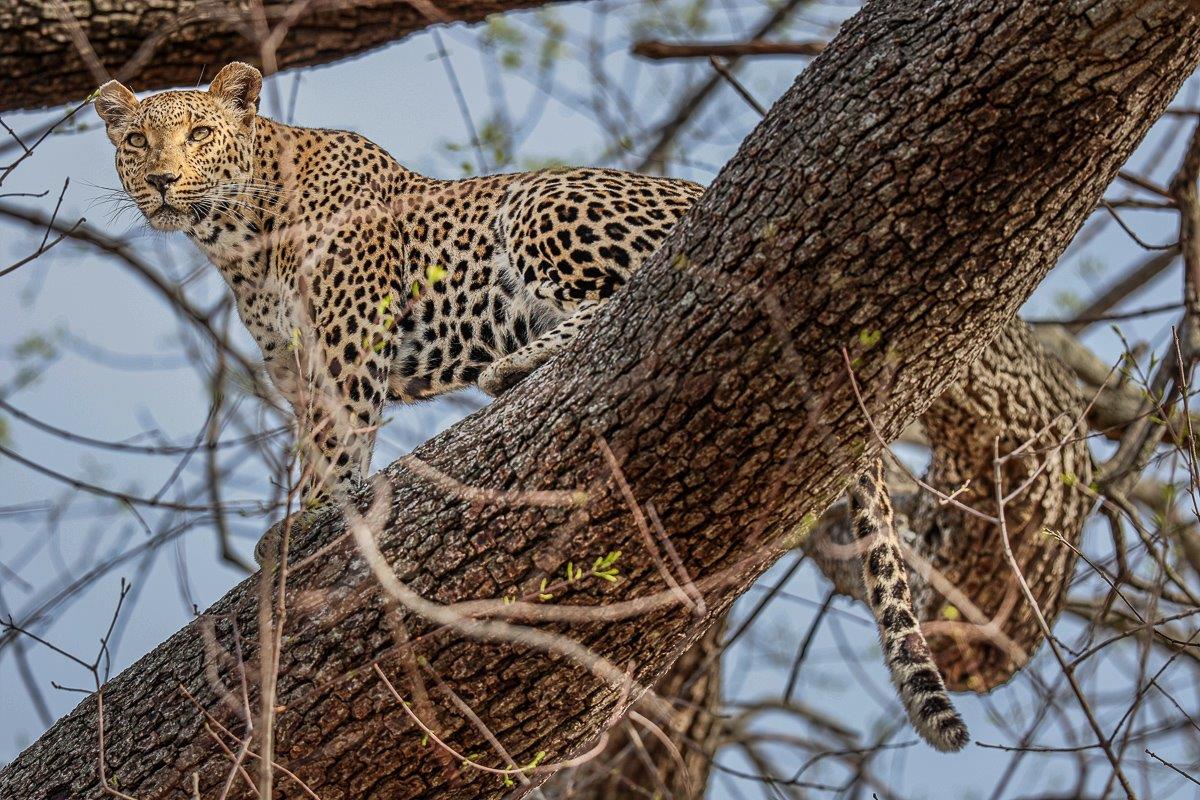
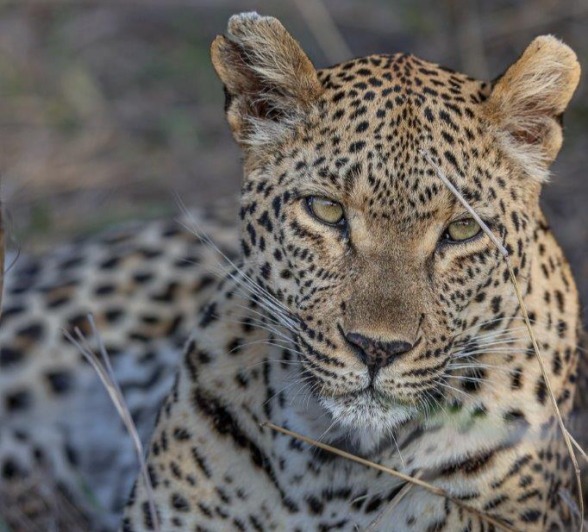
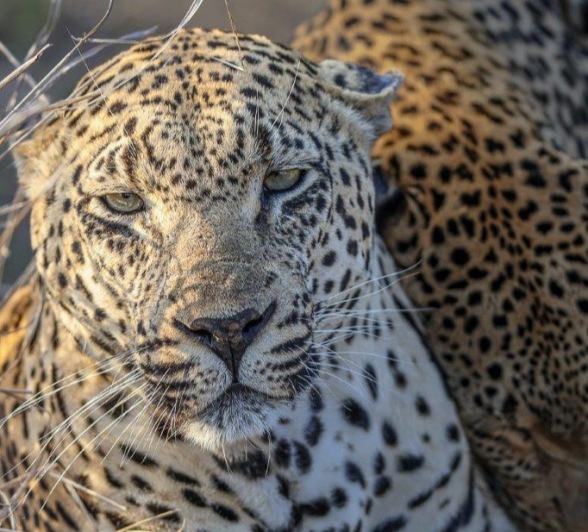
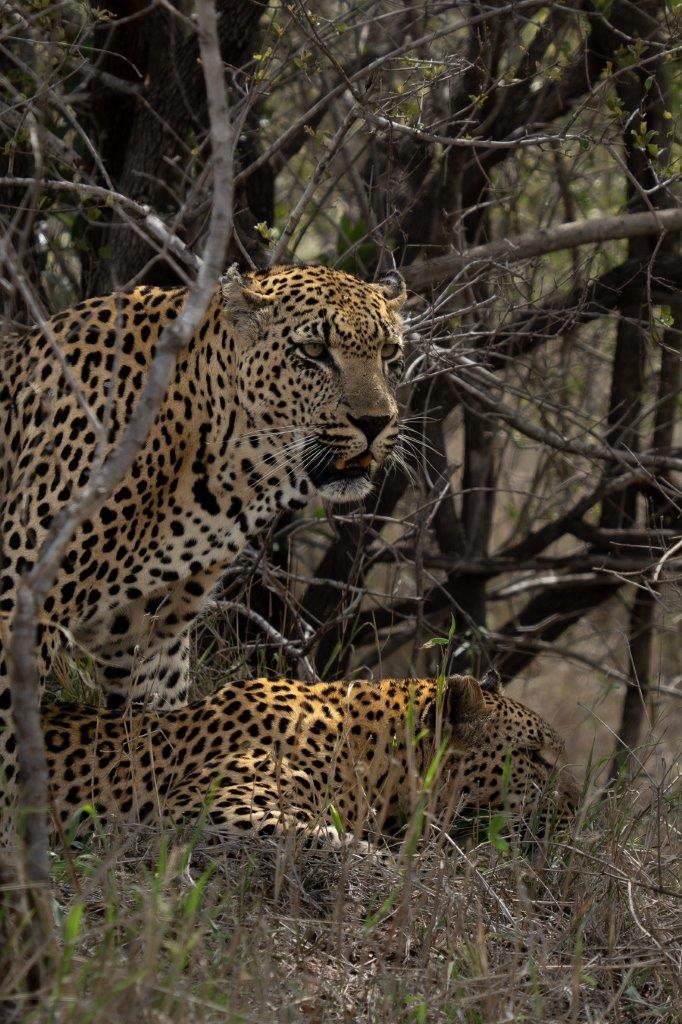
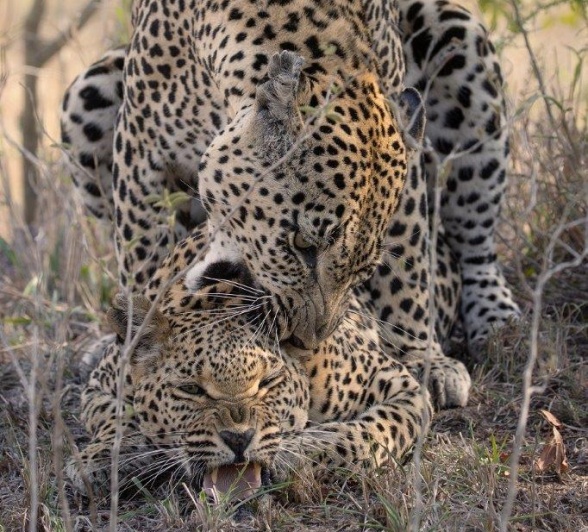
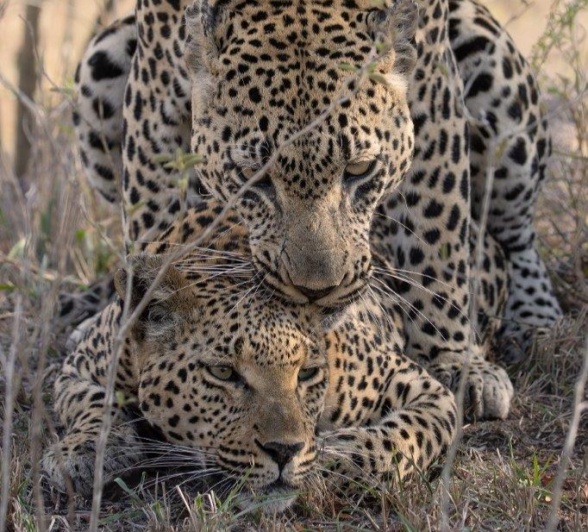
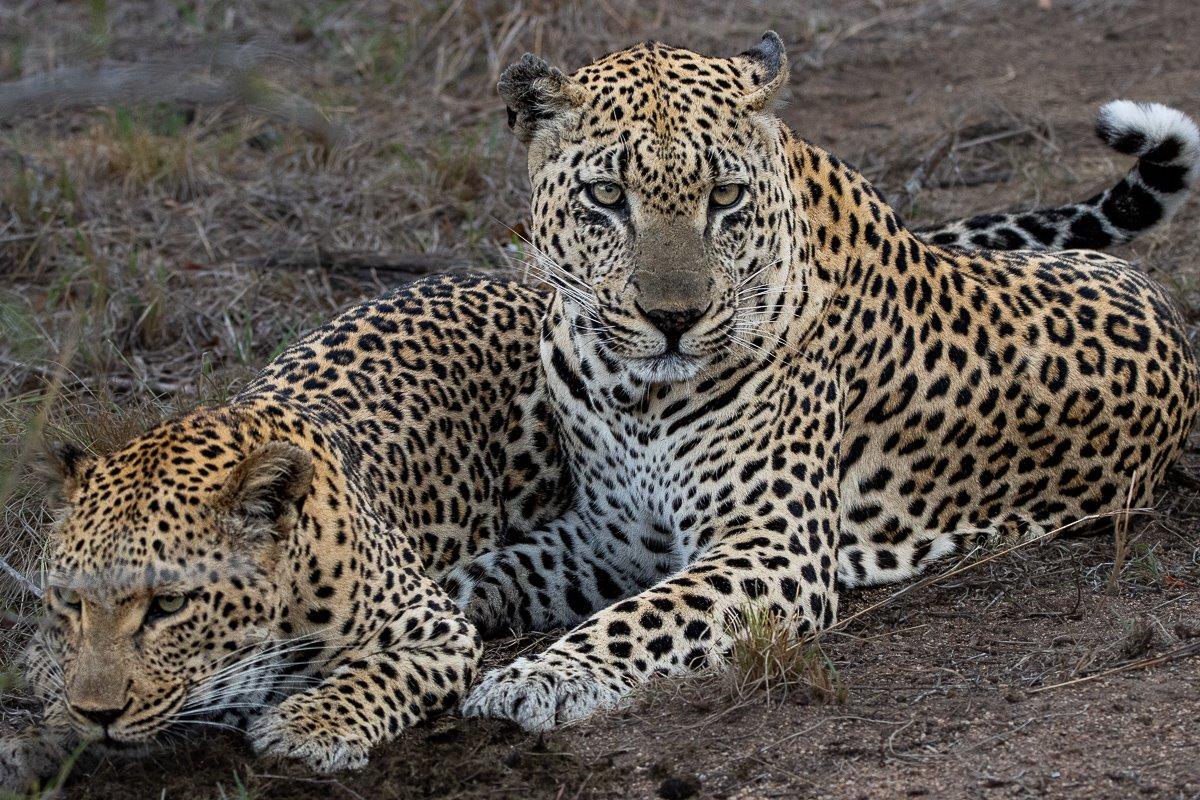
As we drove along the western boundary of our reserve, excitement rippled through the vehicle when our tracker, Donald, suddenly pointed and whispered, “Leopard!” We eased forward and spotted a young male leopard, his body tense and alert. Recognising his discomfort, we kept our distance, sitting in respectful silence to give him space and time to grow accustomed to our presence.
Young male leopards, especially, tend to be wary - mindful of threats from both rival leopards and other predators. These young leopards are still learning the intricate dynamics of territorial life. With skittish animals like this, it’s essential to avoid encroaching too closely, as startling them could set back their trust in vehicles. Instead, by observing from afar and allowing him to adjust at his own pace, we gently introduce him to our presence, fostering a gradual sense of ease.
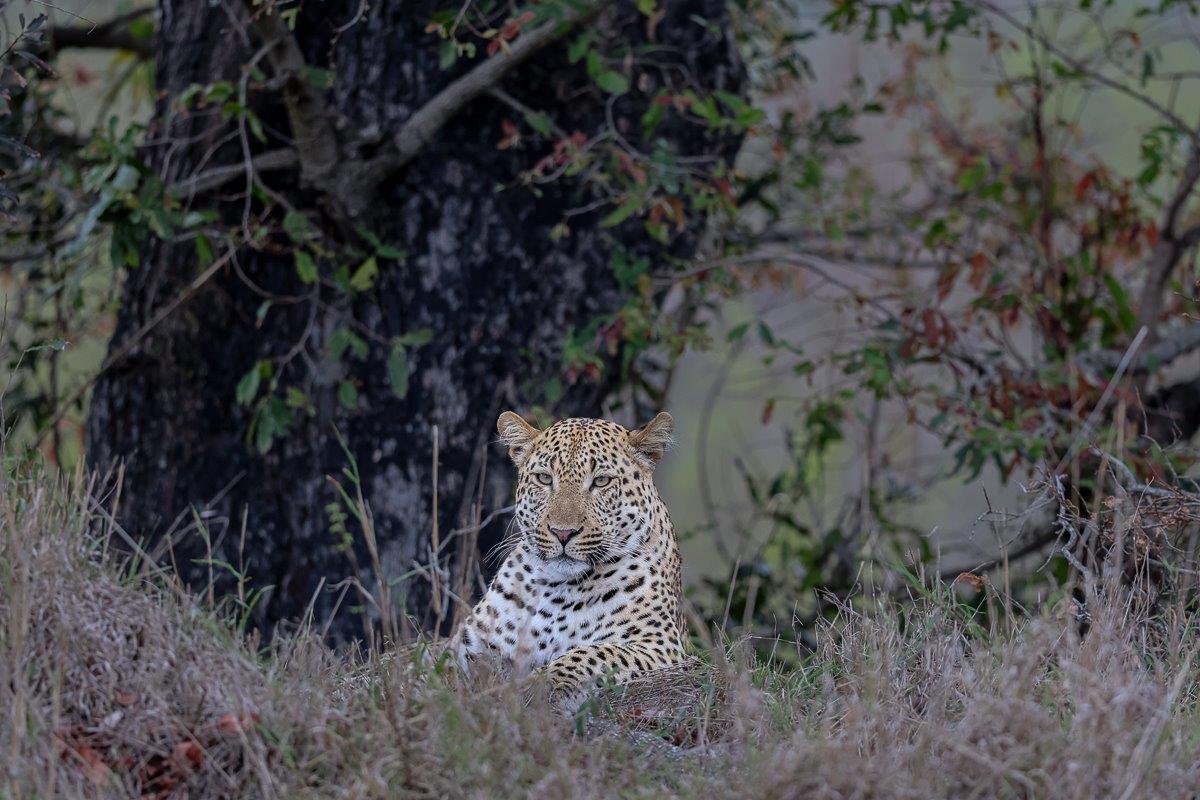
We watched this Blue wildebeest bull proudly looking over his territory, making sure no rival males come close and patiently waiting for some female company. Blue wildebeest bulls are territorial while females and youngsters move over several territories, not staying with one male permanently, this makes the bulls more vulnerable as they do not have the protection of other individuals.
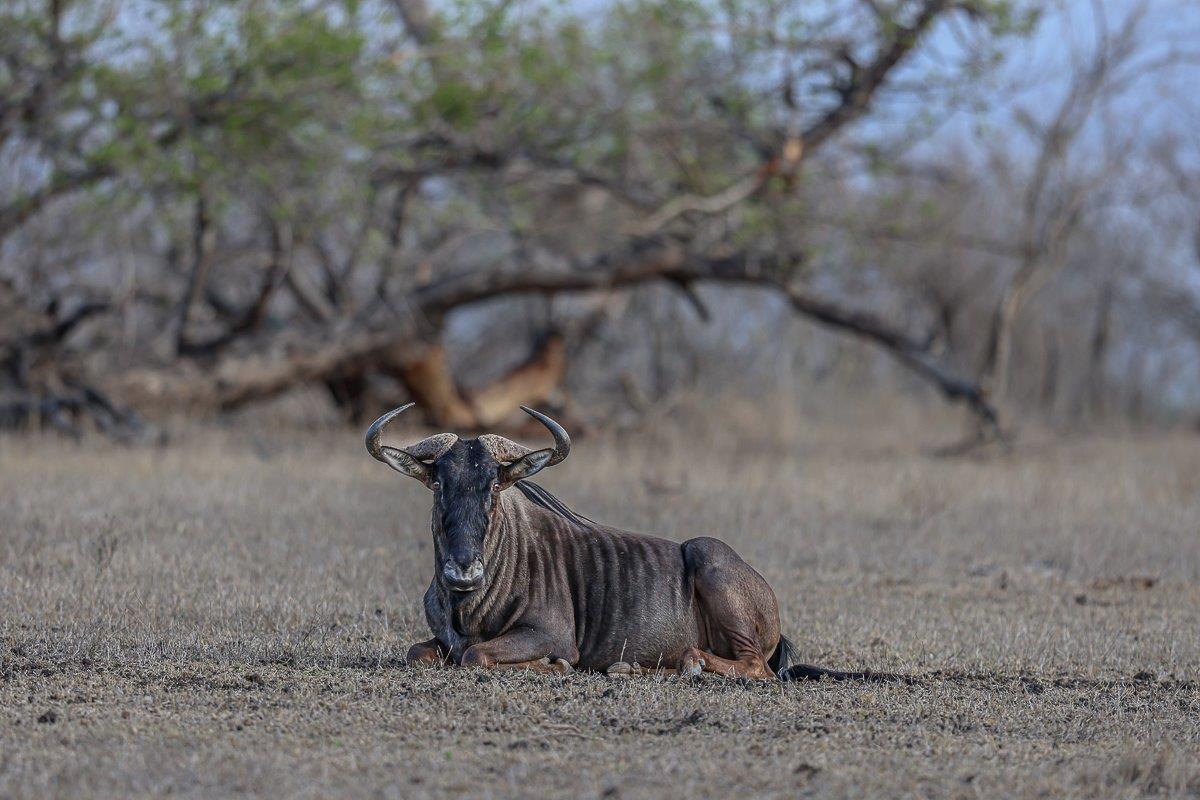
This young male giraffe kept a watchful eye on a distant tower of giraffes. Unlike females, male giraffes don’t adhere to a strict social structure; they often split off and reconnect with various groups, or "towers," based on their needs and behaviour.
Giraffes are known for their remarkable eyesight, allowing them to spot other towers or potential threats from miles away. This young male’s watchful stance reflects an important survival trait - keeping tabs on his surroundings to remain alert to changes in his environment.
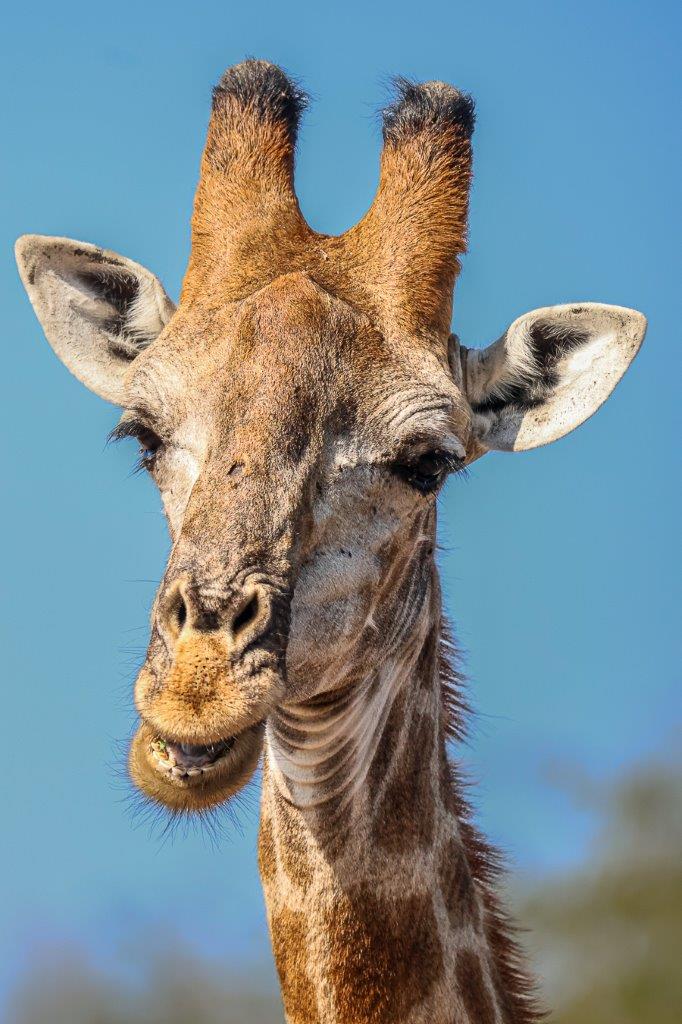
These waterbucks were watching us just outside Earth Lodge. As water-dependent animals, they tend to stay close to reliable water sources like dams and rivers. This proximity is why we see so much waterbuck activity around Earth Lodge, as they frequently visit the dam right in front of the lodge to drink and spend much of their day nearby. Although waterbucks breed year-round, births tend to peak in the rainy season, which explains why we’re seeing several calves now, as we head into the rainy months.
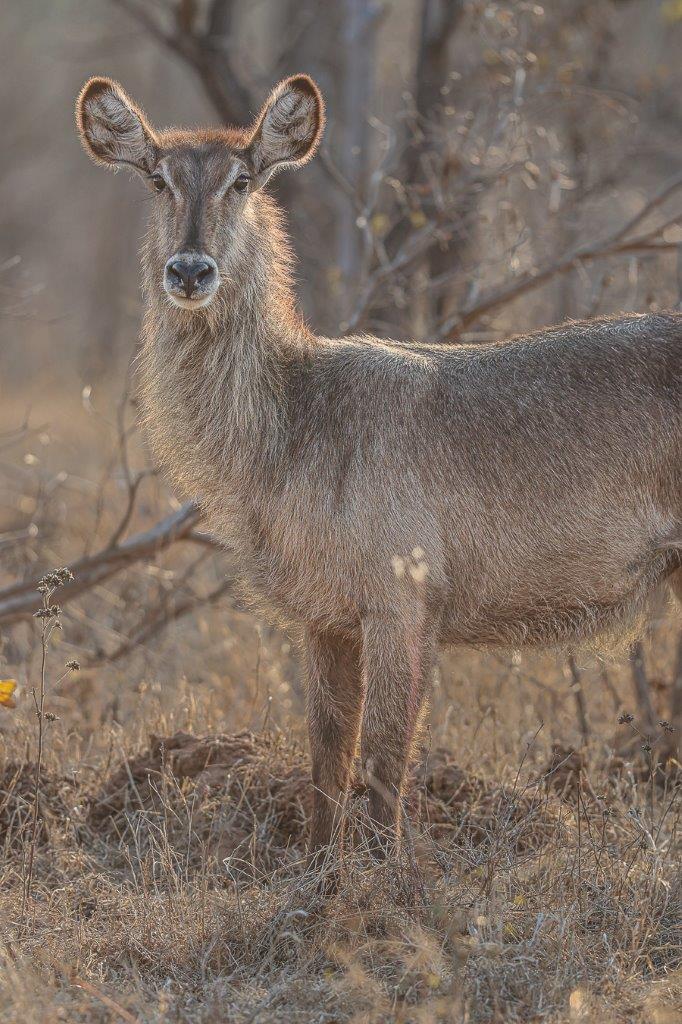
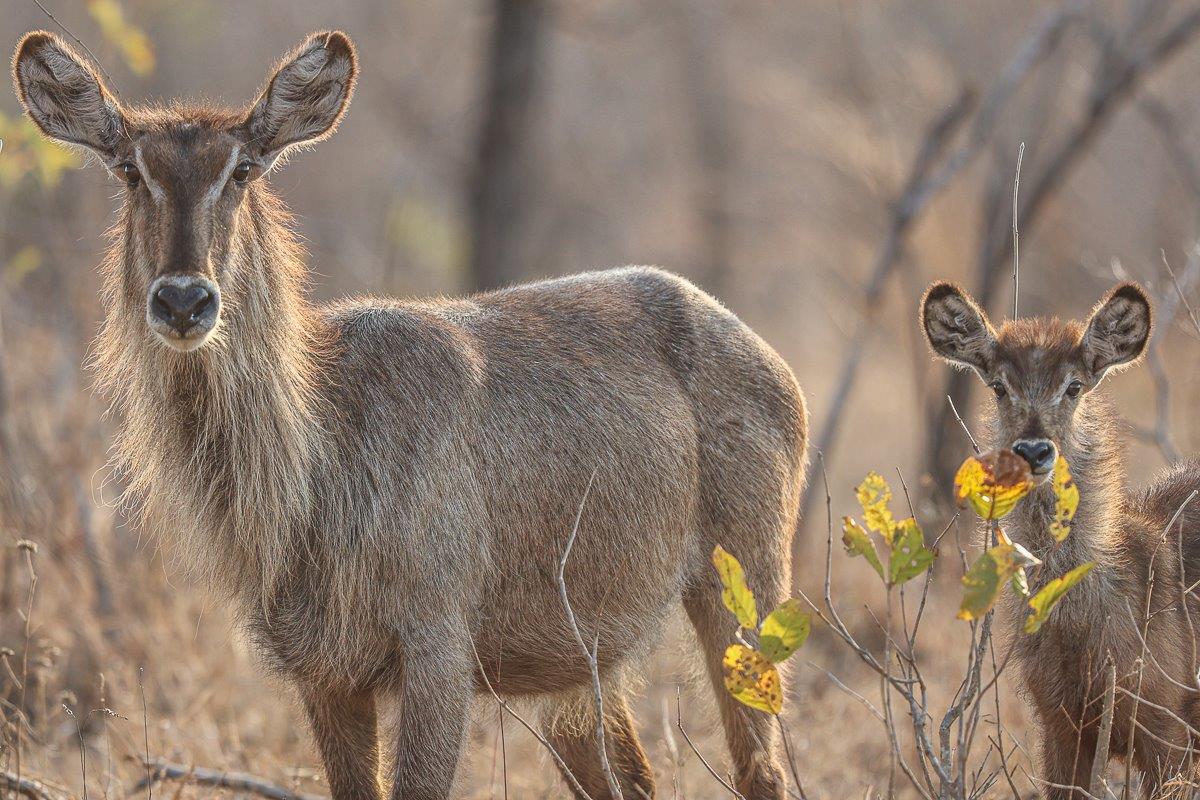
Not far from a hyena den on our reserve, we were treated by one of the adult females making her way out of the drainage line, with other hyenas vocalizing further east of her location, she quickly ventured off towards them to go and investigate. Hyenas rely a lot on vocalisation, as they often split up into smaller groups but will immediately start contact calling when they find food or need backup when facing danger.
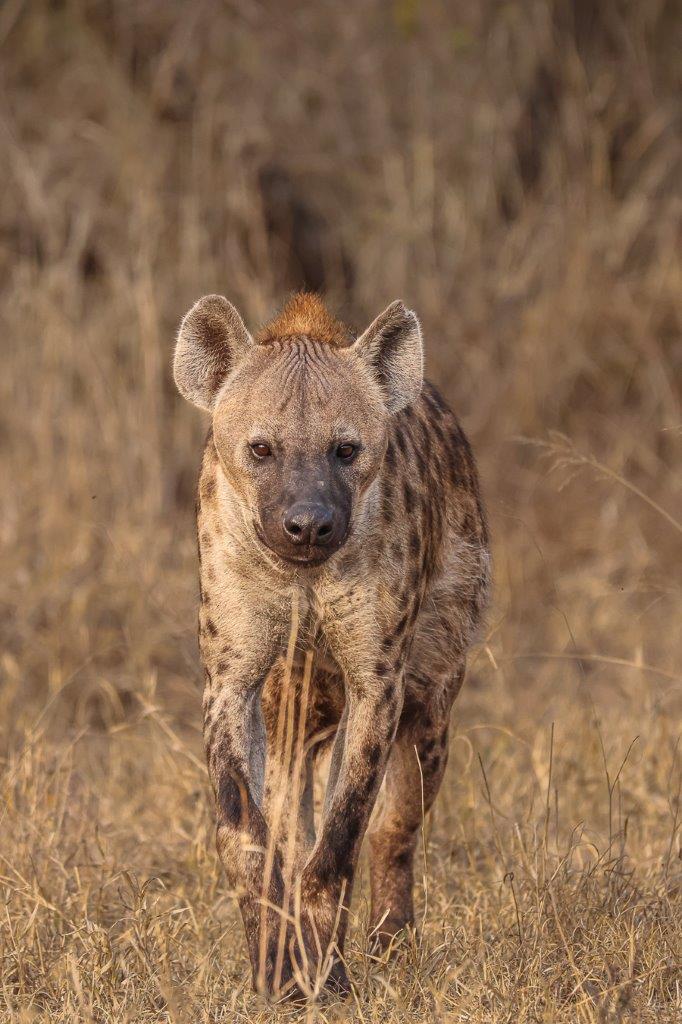
We were treated to a special sighting of this Brown-hooded kingfisher after he was successful in securing an insect for his next meal, even with the name, 'kingfisher', the Brown-hooded kingfisher mainly feeds on insects and other small vertebrates. They are common residents around our reserve but always special, having a clear sighting of one, especially while feeding.
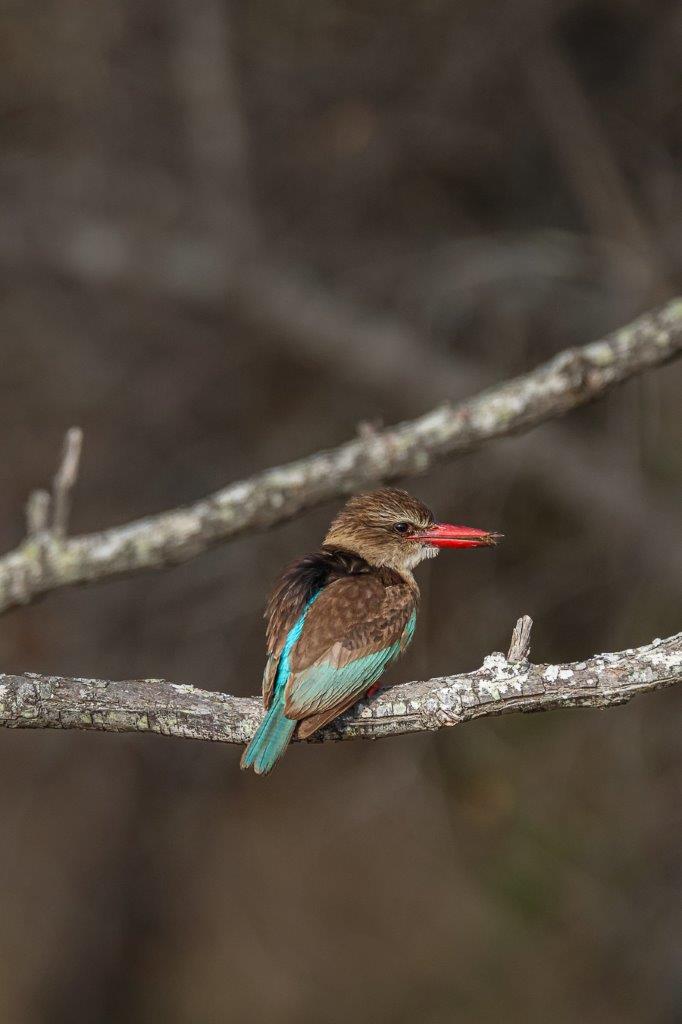
Until next time…

Blog by Wendy Claase
Images by Franco Hay, JP van Rooyen, Ronald Mutero and Ruan Mey
Videos by JP van Rooyen







